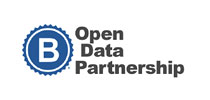 Last week, Better Advertising announced that it would be directing the Open Data Partnership (ODP), which “will provide consumers with full transparency into this data and enable them to edit their information or opt out completely from any participating company’s cookie.” According to the release, initial partners include 33Across, Bizo, BlueKai, Demdex, eXelate, Lotame, SafeCount and Turn. Read the release and Emily Steel’s article in the Wall Street Journal.
Last week, Better Advertising announced that it would be directing the Open Data Partnership (ODP), which “will provide consumers with full transparency into this data and enable them to edit their information or opt out completely from any participating company’s cookie.” According to the release, initial partners include 33Across, Bizo, BlueKai, Demdex, eXelate, Lotame, SafeCount and Turn. Read the release and Emily Steel’s article in the Wall Street Journal.
Better Advertising’s Scott Meyer offered a bit more detail to AdExchanger.com on ODP and his company’s view on the recent U.S. Federal Trade Commission suggestion that a Do-Not-Track list be implemented.
AdExchanger.com: First, how does the Open Data initiative relate to Better Advertising’s endorsement in early October by the Digital Advertising Alliance as the first approved tech provider for the industry’s self-regulation program? Is this a “next step” to the program? Or something new and different?
SM: It’s the natural step toward enabling self-regulation for the industry since it enables greater transparency for consumers. So, while it’s not prescribed as per the endorsement, it’s what we have had in mind throughout. Our clients – leading agencies, advertisers, networks and data aggregators – also have been asking us to do this. As the industry standard for providing consumer transparency and control, we’re in the best position to deploy this quickly and widely.
In that users will be able to edit their information, is it possible targeting could improve?
This is possible in theory, sure. But, the intent here is consumer transparency and control, not improving ad targeting. Our research has shown that what’s more likely is that consumers will feel more favorably about the brands and companies participating in efforts to bring more transparency to this segment. We all know that our industry shouldn’t fear the opt-out. This is an opportunity for everyone to show they truly believe it.
Can any online ad targeting data provider become part of the Open Data Partnership? What are the criteria? How about auditing once they’re a part of the program?
Any company that is collecting data for online behavioral advertising can become a member of the Open Data Partnership as long as they provide opt-out functionality and editing of their targeting criteria. Just about every company that would qualify should be a member of the Self-Regulatory Program for Online Behavioral Advertising (www.aboutads.info), and we strongly recommend that they do so. We’re not providing a formal certification yet. But, we certainly will be monitoring to be sure that participating companies are delivering on their promises.
What’s your view on the Do-Not-Track list that the FTC has recommended?
We’re a company that was created to design and implement technology to enable our industry to remain self-regulated. So, we pay close attention to anything the FTC says about our industry. The calls for Do-Not-Track that we have heard from the FTC have, thus far, all been calls for our industry to provide meaningful do not track and other tools for consumers ourselves. We’re doing that. So, while none of us probably wants to think about what a federally-run Do-Not-Track would look like for our industry, we intend to keep it from becoming a reality by scaling the self-regulatory program.
Where does Ghostery fit in all this? Could it provide the Do-Not-Track functionality the FTC has asked for?
Ghostery does that and much more today. That’s why more than 3 million people utilize it across every major browser (Firefox, IE, Chrome and Safari). Ghostery’s success is precisely why we think a Federally-mandated Do Not Track list is unnecessary. Tools like Ghostery and others already provide a straightforward and free way for consumers to block data collection for online behavioral advertising.
By John Ebbert













